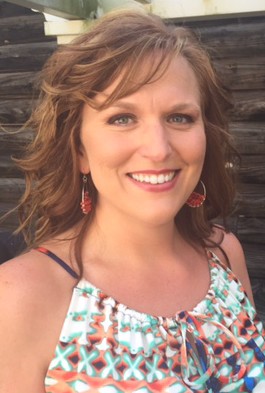Everyone in town knew her. She’d made her peace with the death of her dream long ago. She had no child of her own, so she found contentment in caring for other people. She was the kind of woman who was quick to recognize a need and quickly took care of it.
She was the one who went out of her way to invite the travelling prophet to stop in for dinner. In fact, anytime he passed through town, she and her husband were sure to feed him a meal.
She was the one who realized he needed a comfortable place to stay when in town. She suggested to her husband that they build an upstairs room for him. She was a hospitable woman, furnishing the room with a bed, a table and chair, and a lamp.
She never asked for anything . . . even when the holy man asked what he could do in return for her kindness. He offered to speak to the king on her behalf for whatever request she may have, but she refused. “I’m secure and satisfied in my family.”
Still, he was determined to bless her for her generosity.
He asked his servant if he knew what could be done for the woman, what needs she might have. His servant offered a simple answer, perhaps with a shrug: “Well, she has no son, and her husband is an old man.” Was the servant suggesting the impossible?
Without hesitation, the prophet called for her. She immediately came and stood in the doorway, surely expecting to fulfill some request.
Instead, the holy man made an announcement that shocked her: “This time next year you’re going to be nursing an infant son.”
Surely her hand flew up to her mouth as her knees threatened to collapse beneath her. That dream was dead, and she couldn’t afford to reopen her heart to hope. She’d long ago quit asking for a child. “O my master, O Holy Man, don’t play games with me, teasing me with such fantasies!”
But just as the prophet said, one year later, she gave birth to a son.
Some years later, the son went to his father complaining of his head hurting. His father ordered the servants to carry the son to his mother. The child laid on his mother’s lap . . . and died. She immediately carried him upstairs, laid him on the prophet’s bed, and shut the door as she left.
She told no one that her son had died. Instead, she hurried off to find the prophet, the one who’d rebirthed her dead dream.
When the prophet saw her coming, he sent his servant to find out why she was there. He asked if something was wrong with her or her husband or her child. She answered, “Everything’s fine.”
But when she finally reached the prophet, she threw herself on the ground, wrapping herself around his feet. Perhaps the emotions she’d held so tightly in check finally erupted in sobs.
After she collected herself, she spoke: “Did I ask for a son, master? Didn’t I tell you, ‘Don’t tease me with false hopes’?”
No further explanation was needed. Those two questions revealed her heart. She’d given up on having a child. She’d found contentment with the hand life had dealt her. Then, he’d come along and given her what she thought was impossible, what she’d quit asking for decades ago. A precious son. And now he was dead, and she thought she might die from the grief. Why, oh why, after she’d buried hope, would she be given the gift of a son, only to have him taken from her?
The prophet immediately sent his servant to the boy, commanding that he not speak to anyone along the way. The woman demanded to go with him. After all, this was the dream that had been handed to her after she’d given up and quit asking for it. She wasn’t about to let go so easily this time.
When the servant arrived, he placed the prophet’s staff on the boy’s face, but there was no response. The boy . . . the gift, the dream, the hope . . . dead. The servant delivered the news to the prophet.
The prophet then went up to the room, shut the door, and prayed. Then, he stretched himself out upon the child — hands on hands, eyes on eyes, mouth on mouth — and the body became warm. The prophet got up and paced the house once, then went back and stretched himself upon the child once more. That’s when the miracle happened.
The child sneezed seven times then opened his eyes.
The prophet had his servant call for the woman. When she arrived in the room, he said, “Embrace your son.” Instead, she fell at the prophet’s feet, her heart pounding, tears of gratitude streaming down her face.
She finally gathered her strength and rose from the floor. Grief, exhaustion, determination, hope, and gratefulness all melded when she embraced her son, her gift, her resurrected dream.
* * * * *
Have you been given a gift you didn’t ask for, but now can’t imagine living without? Maybe a dream you once hoped for, but finally buried, only to have it resurrected? Have you then watched that dream die a second death in your hands?
The Grief. The Sorrow. The Anger. The Frustration. The Questions.
But then . . .
The Hope.
*This post is based on the story of Elisha and the Shunammite woman found in 2 Kings 4. Quote are from The Message.


